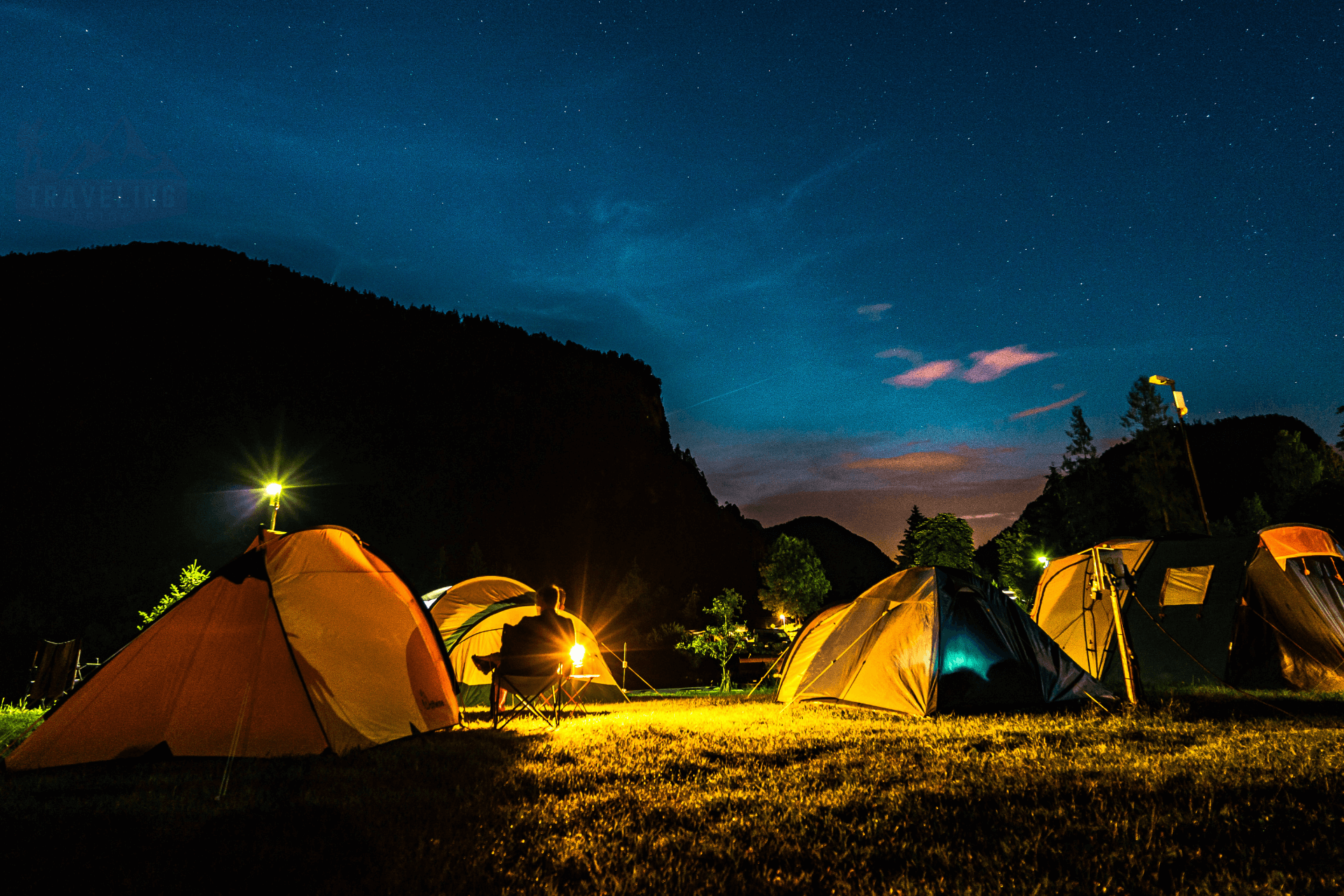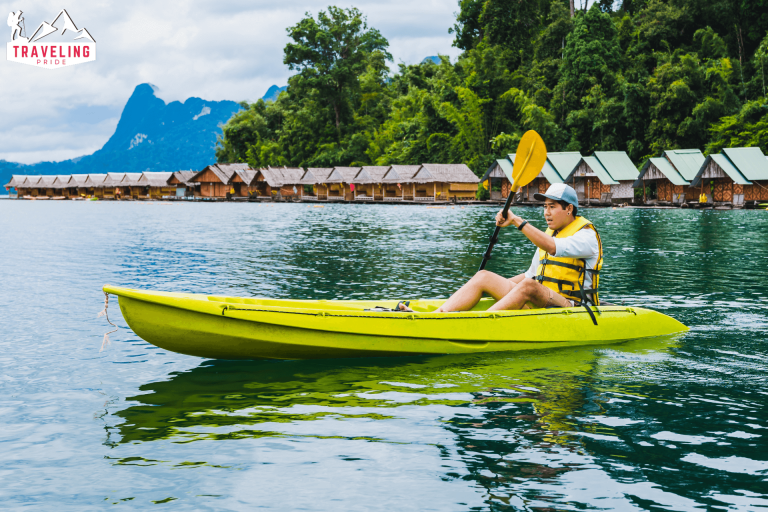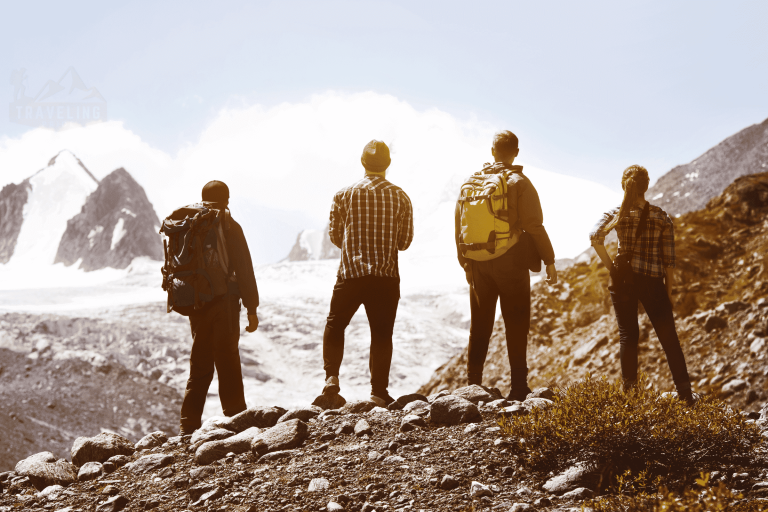19 Common Camping Mistakes You Must Avoid
Camping is a cherished outdoor activity that helps individuals reconnect with nature and escape the hustle of everyday life. However, even experienced campers can fall into traps that lead to discomfort or danger. Understanding and avoiding common camping mistakes can significantly improve your experience, ensuring it is enjoyable and safe. Whether you’re new to camping or a seasoned pro, knowing these errors will help you prepare effectively and maximize your time spent under the stars.
Planning and Preparation Mistakes
Planning and preparation are crucial for a successful outdoor adventure, yet many people make common mistakes that can hinder their experience. These missteps can lead to discomfort and even safety risks, from underestimating the weather to packing issues. Let’s explore these planning and preparation mistakes in detail to ensure a smoother journey.
Underestimating the Weather
A common mistake when planning a camping trip is underestimating the weather. Relying on short-term forecasts can be risky, especially in unpredictable areas. Preparing for sudden weather changes is essential by packing for both expected and unexpected conditions, such as rain or cold snaps. The proper clothing, a sturdy tent, and weather-resistant gear are crucial for a safe and enjoyable camping experience.
Not Planning Your Campsite in Advance
Choosing a campsite spontaneously can be risky, as popular sites might be fully booked, forcing you to find less ideal alternatives. Researching and reserving your campsite in advance is crucial, especially during peak seasons. Consider factors like proximity to trails, available amenities, and terrain to avoid inconveniences and ensure a more enjoyable camping experience.
Packing Too Much or Too Little
Packing the right amount for a camping trip is crucial. Packing makes your backpack heavy and clutters your site, while underpacking can leave you with essential gear. To find the right balance, create a thoughtful packing list of essentials like a first aid kit, appropriate clothing, food, water, and shelter equipment. Practice packing to ensure efficiency and accessibility, allowing you to enjoy the outdoors without excess weight or unpreparedness.
Failing to Test Gear Beforehand
Testing your gear before a camping trip is essential to avoid malfunctions and difficulties. Set up your tent, try out cooking equipment, and ensure all electronics are operational and charged. This preparation confirms everything works and helps you become familiar with the gear, leading to a smoother and more enjoyable camping experience.
Gear and Equipment Mistakes
Choosing the right gear is essential for a successful camping experience. Common mistakes include:
- Selecting the wrong tent.
- Forgetting essential tools like a multi-tool or first aid kit.
- Skimping on sleeping gear.
Proper preparation in these areas can greatly enhance your overall trip enjoyment.
Choosing the Wrong Tent
Choosing the right tent is essential for a comfortable camping experience. It should accommodate the number of users and suit the expected weather conditions. Consider size, weight, and ease of setup, especially for backpacking versus family camping. Ensure your tent has durable materials for bad weather and good ventilation to prevent condensation. Investing time in research can help you avoid a sleep-deprived ordeal and enjoy your time in nature.
Forgetting Essential Camping Tools
Forgetting essential camping tools like a multi-tool, knife, or compass can lead to frustrating and dangerous situations. These items are vital for problem-solving and navigation in the outdoors. A multi-tool provides versatility, a knife is essential for food preparation and crafting, and a compass is crucial for navigation, especially in unfamiliar areas. While GPS devices are helpful, traditional tools serve as reliable backups. Properly packing and using these tools enhances safety and enjoyment during camping trips.
Skimping on Sleeping Gear
Investing in quality sleeping gear is crucial for a good night’s sleep while camping, especially after a long day outdoors. Choosing the right sleeping bag for the climate, using a sleeping pad or air mattress for added comfort, and ensuring proper neck support with suitable bedding can significantly enhance your camping experience. Prioritizing your sleeping arrangements will improve your energy levels and enjoyment of nature.
Food and Cooking Mistakes
When it comes to camping, food and cooking can be a challenge if not managed properly. Many campers must pay more attention to critical aspects that can lead to disappointing meals or food waste. Understanding and avoiding these common cooking mistakes can greatly enhance the outdoor culinary experience. Here are some key areas to focus on:
Inadequate Food Planning
Inadequate food planning while camping can lead to poor nutrition and waste. To avoid this:
- Outline meals and snacks based on the number of people and dietary needs.
- Incorporate nutrient-dense foods and consider lightweight dehydrated meals that require just hot water.
- For balance, include fresh fruits and vegetables, and invest in proper storage to keep food fresh.
Effective planning reduces food shortages and waste, enhancing the camping experience with enjoyable meals.
Not Storing Food Properly
Proper food storage while camping is essential to prevent spoilage, contamination, and unwanted wildlife encounters. Use airtight containers, resealable bags, and bear-proof canisters in bear-prone areas. Dispose of waste and wash dishes promptly to maintain a clean campsite, and keep perishables chilled in an insulated cooler. Following these practices ensures a safer and more enjoyable outdoor cooking experience.
Neglecting to Bring a Backup Cooking Method
Campers must bring a backup cooking method to ensure meal preparation, especially if the primary setup fails due to weather. A portable camping stove can be a lifesaver when campfires don’t ignite. Packing extra fuel and a small emergency kit with fire-starting materials is wise. Exploring various cooking methods, such as foil-packed meals or no-cook recipes, can also enhance the outdoor cooking experience and reduce stress during the trip.
Health and Safety Mistakes
When it comes to camping, prioritizing health and safety is crucial for an enjoyable experience. Many campers overlook essential precautions, leading to preventable accidents and discomfort. Here are some common mistakes that should be avoided to ensure a safer outdoor adventure:
Not Bringing a First Aid Kit
Bringing a first aid kit on a camping trip is crucial to avoid severe consequences from unexpected injuries or health issues. A well-stocked kit should contain essentials like bandages, antiseptic wipes, pain relievers, personal medications, and items for common outdoor problems like insect bites and sunburn. Familiarizing yourself with the kit’s contents and basic first aid procedures can help you respond effectively in emergencies, ensuring a safer and more enjoyable camping experience.
Ignoring Basic Fire Safety Rules
Neglecting fire safety rules can endanger campers and the environment. Common mistakes include leaving campfires unattended and not fully extinguishing fires before leaving. Always use designated fire pits, keep flammable materials away, and have water or sand on hand to manage flare-ups. Following these practices ensures a safe and enjoyable camping experience for all.
Not Knowing Local Wildlife Risks
To ensure a safe camping experience, it’s essential to recognize and prepare for local wildlife risks. Research the animals in the area, understand their behaviors, and follow recommended precautions. For instance, bear-resistant containers should be used in bear territory, and proper food handling should be practiced. Protect against snakes, ticks, and other small creatures by using insect repellent and wearing protective clothing. Staying informed and adhering to safety measures helps campers and wildlife coexist peacefully.
Forgetting Sun Protection and Insect Repellent
For a comfortable and safe camping trip, it’s crucial to prioritize sun protection and insect repellent. Use a broad-spectrum sunscreen with at least SPF 30, reapplying every two hours, and wear protective clothing and hats to shield against harmful UV rays. To prevent insect bites, apply repellent with DEET or picaridin and consider using mosquito nets or treated clothing in infested areas. Taking these precautions helps avoid discomfort and potential health risks from sun exposure and insect bites.
Environmental and Ethical Mistakes
When it comes to camping, it’s essential to be mindful of environmental and ethical considerations to preserve the natural beauty of our outdoor spaces. Common mistakes can lead to negative impacts on nature and fellow campers. Here are a few key areas where campers often falter:
Not Following “Leave No Trace” Principles
Adhering to “Leave No Trace” principles is vital for protecting the environment while enjoying the outdoors. Campers should avoid leaving litter, straying from marked trails, and disturbing wildlife to prevent harm to local ecosystems. By packing out what they pack in and respecting natural surroundings, campers help preserve the beauty and resources of nature for future generations.
Disrespecting Quiet Hours
Respecting quiet hours at a campsite is crucial for maintaining tranquility and ensuring all campers can relax. Most campgrounds designate specific times, usually late evening and early morning, to minimize noise. To enhance the camping experience for everyone, it’s essential to communicate quietly, avoid loud music, and be mindful of conversation volumes. Adhering to these guidelines fosters a respectful and serene environment for all.
Improper Waste Disposal
Improper waste disposal significantly harms the environment and the camping experience. Campers should always use designated trash bins or pack out waste, properly dispose of food scraps, and handle human waste carefully by using established restrooms or burying it far from water sources and trails. By committing to responsible waste practices, campers help preserve natural habitats and maintain a clean environment for everyone.
Miscellaneous Mistakes
When it comes to camping, avoiding common mistakes can significantly enhance your experience in the great outdoors. Two often-overlooked pitfalls are navigation, map reading, and hydration. Proper navigation skills are crucial for ensuring safety and making the most of your surroundings while staying adequately hydrated, essential for maintaining energy and overall well-being during your adventures.
Overlooking Navigation and Map Reading
Mastering navigation and map reading is crucial for campers, as relying on mobile devices can be risky in remote areas. Equipping yourself with a detailed map and compass and basic orienting skills boosts confidence and ensures you can safely find your way. Consider taking workshops or online tutorials to enhance your skills, and always inform someone of your route and return time for added safety. Prioritizing navigation preparedness enables successful and worry-free outdoor adventures.
Ignoring Hydration Needs
Staying hydrated is essential for a safe and enjoyable camping experience, especially in hot or active conditions. Dehydration can cause fatigue and severe health issues, so it’s essential to drink enough water throughout the day and adjust intake based on activity and temperature. Using portable water filters or treatment tablets can help purify natural water sources. Watch for signs of dehydration and encourage others to do the same to enhance overall well-being and enjoyment during your camping trip.
Conclusion – Common Camping Mistakes
Camping provides a rewarding opportunity to connect with nature and escape daily routines. By avoiding common mistakes and embracing responsible habits—such as respecting quiet hours, proper waste disposal, and staying hydrated—campers can enhance their experiences while preserving the environment. As outdoor exploration grows, adopting mindful practices is crucial to maintaining the beauty of natural spaces for future generations.







